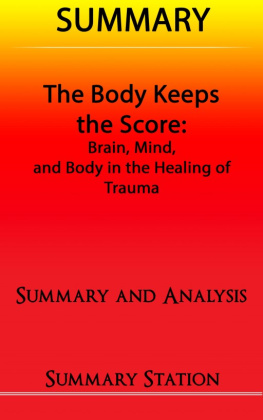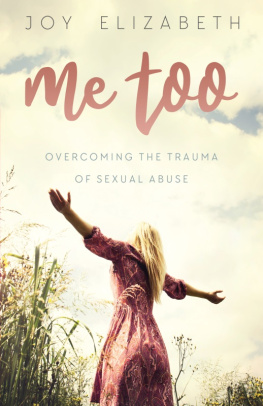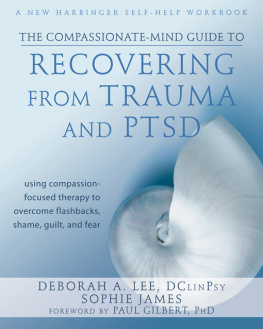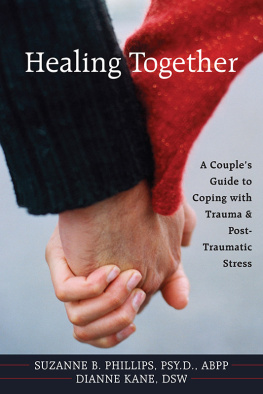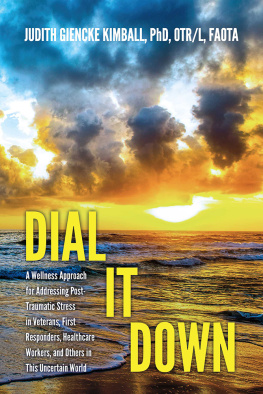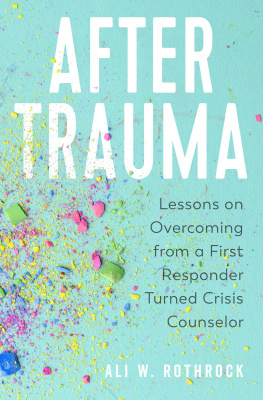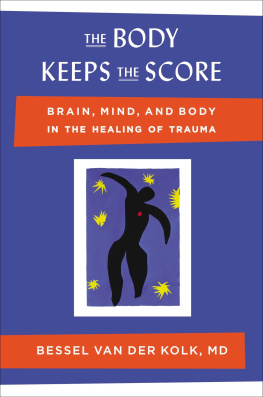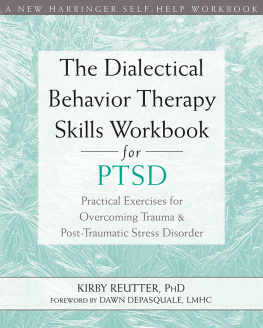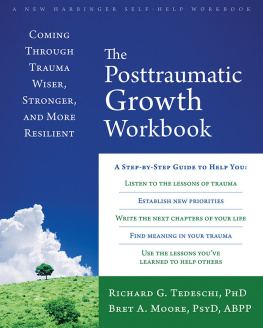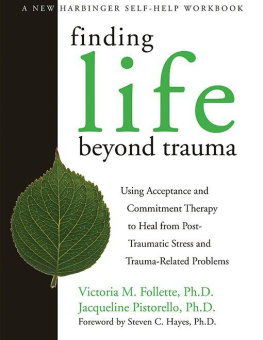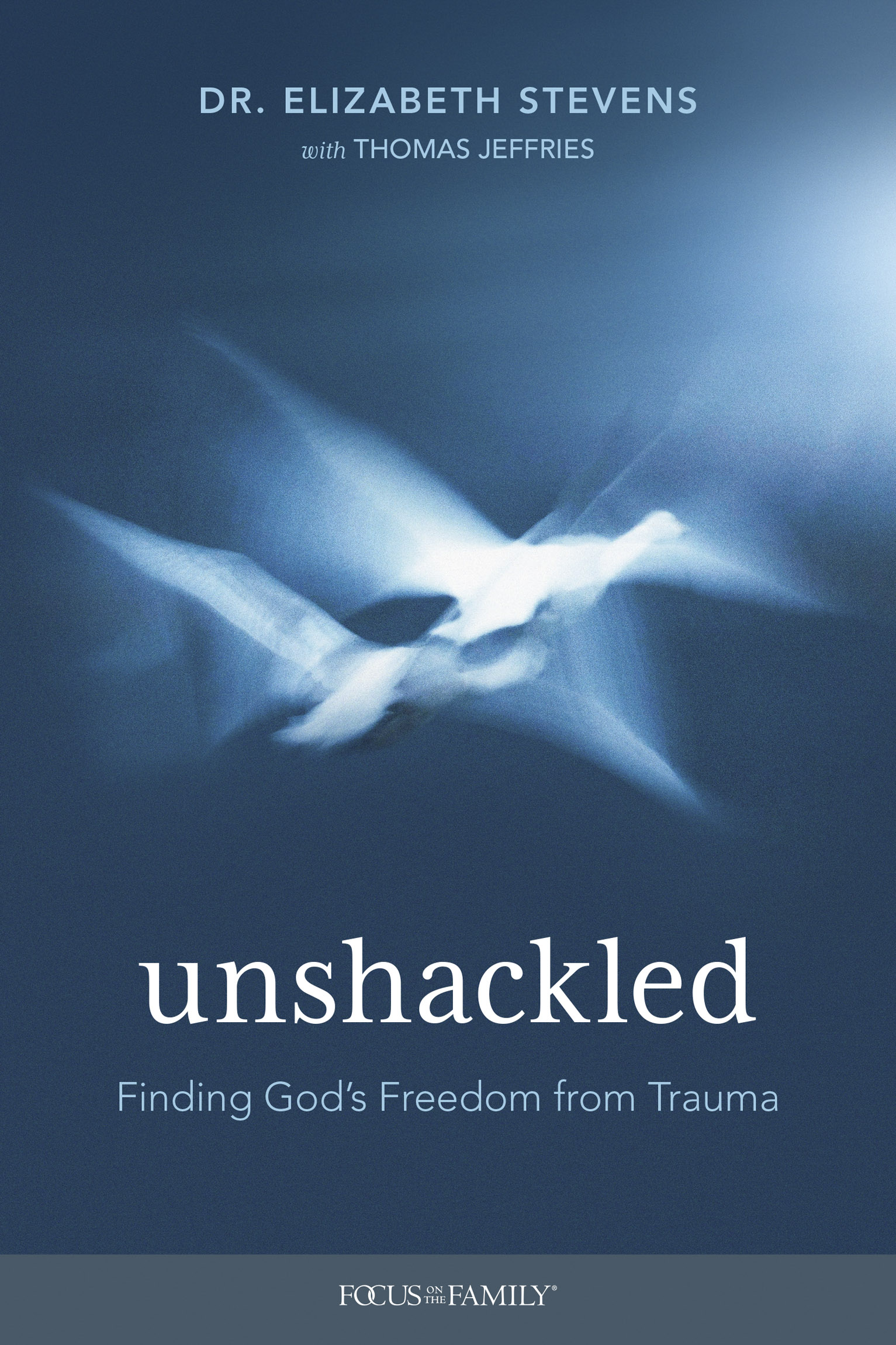Unshackled: Finding Gods Freedom from Trauma
2022 Elizabeth Stevens. All rights reserved.
A Focus on the Family book published by Tyndale House Publishers, Carol Stream, Illinois 60188
Focus on the Family and the accompanying logo and design are federally registered trademarks of Focus on the Family, 8605 Explorer Drive, Colorado Springs, CO 80920.
Tyndale and Tyndales quill logo are registered trademarks of Tyndale House Ministries.
No part of this publication may be reproduced, stored in a retrieval system, or transmitted in any form or by any meanselectronic, mechanical, photocopy, recording, or otherwisewithout prior written permission of Focus on the Family.
Unless otherwise indicated, all Scripture quotations are from The ESV Bible (The Holy Bible, English Standard Version), copyright 2001 by Crossway, a publishing ministry of Good News Publishers. Used by permission. All rights reserved.
The use of material from or references to various websites does not imply endorsement of those sites in their entirety. Availability of websites and pages is subject to change without notice.
Cover photograph of swans copyright imageBROKER/Erhard Nerger/Getty Images. All rights reserved.
Designed by Sarah Susan Richardson
For information about special discounts for bulk purchases, please contact Tyndale House Publishers at , or call 1-855-277-9400.
ISBN 978-1-64607-037-4
Build: 2022-07-13 11:54:55 EPUB 3.0
introduction
The first thing I recall after regaining consciousness was total blindness, followed immediately by searing pain. My head was aching and my jaw was throbbing, clenched so tightly that I thought my teeth had been knocked out.
It was the summer of 2015, and Id been descending from atop Longs Peak in Colorados Rocky Mountain National Park. The weather was beautiful that day, and a friend and I had reached the summit by sunrise. We were on our way back down the mountain, crossing a sloping field of boulders, when I stumbled and fell.
My friend was ahead of me and didnt witness my fall, but I can remember that both my hands were caught tightly in the straps of my hiking poles, and I was unable to catch myself before I fell headfirst into a large rock below me.
Everything went white. My mind flashed back to my one previous life-threatening experience: As a child, I had slipped underwater in a swimming pool. I knew I couldnt breathe and that I was about to drown, until someone noticed me struggling and pulled me back to the surface.
On that mountainside field of boulders, I felt like that drowning child again. I cant breathe. My life seemed to be fading away.
As I gradually came to, I touched my face and realized that my eyes were covered with blood. I started to wipe it off, discovering that I wasnt blind after all. Blood was flowing out of a head wound above my left eye. I was in shock, dizzy, and nauseated, but I managed to convert my buffa head covering favored by mountain climbersinto a bandage.
A park ranger quickly arrived on the scene and told me I needed to get down the mountain as soon as possible. He said that the nearest rescue team was busy assisting with a car accident, so my friend and I would need to descend on our own.
My neck was unsteady, and I had likely experienced whiplash, but I was able to make it back to the car without falling again. As wed encountered groups of hikers on their way up the mountain, Id been surprised at the looks of stark horror Id seen in their eyes. When I saw my reflection in the car, I suddenly understood the reason for them. I looked like a warrior out of the movie Braveheart, my face crimson with blood and a makeshift bandage wrapped around my head. My friend drove me to the emergency room in a nearby town, where they cleaned my wound and stitched me up. They also took a CT scan that apparently showed no immediate concerns. Then they sent me home.
I didnt realize it at the time, but I had suffered a traumatic brain injury (TBI). It wasnt the first time Id experienced serious trauma. Unfortunately, it also wouldnt be the last.
At the time, I had no understanding of the journey that lay ahead of me, the time Id spend struggling to regain some sense of normalcy. My body no longer had the same capabilities as before, and my mind wasnt much better. The person I had been before the injury seemed to have vanished.
Reflecting on this experience years later, even as I still mourned for the person whod been lost, I began to realize what Ive gained along the way. I started to recognize how God has used this journey to soften my heart and help me more fully experience emotions I once pushed aside. Hes used the trauma that tore my soul to bring healing in areas of my life that Id never even realized were broken.
When most people hear the word trauma, they often picture serious, life-threatening situationsa military ambush, a school shooting, someone being trapped in a burning building. Others might think of victims of violent crime, abuse, or sexual assault. We might even remember those whose job it is to step in and helpthe medical workers, the soldiers, the first responders, the people whose next shift on duty could bring them face to face with a deadly car crash, a natural disaster, or cardiac arrest.
But much trauma is unnoticed. Trauma can occur whenever someone is overwhelmed, like when they narrowly avoid a head-on collision, face a serious illness, or experience ongoing harassment or bullying. Repressed childhood trauma can rear its head years later when an individual faces certain triggering events. Constant threats of danger or harm are enough to trigger traumatic responses. (The fear of domestic violence, for example, can sneak up on a person in their own home.)
The Diagnostic and Statistical Manual of Mental Disorders (DSM-5), the American Psychiatric Associations preeminent manual on mental disorders, says that individuals can develop post-traumatic stress disorder (PTSD) merely from being exposed to someone elses trauma, like witnessing a traumatic event or learning that a close friend or loved one has faced one.
As we consider the wider landscape of trauma, we begin to recognize that it may lurk all around us. Its a frightening thought, to be sure, but having this larger view of the nature of trauma allows us to better recognize and navigate its effects in our own lives.
The experience of trauma can cause feelings of loss, hopelessness, and helplessness. It can also affect how we see God and ourselves. When we clearly identify the trauma in our lives and how it affects us, we can better address the resulting dysfunctional thought patterns and behaviors that lead to harmful barriers in our relationships, faith, careers, and more.
I never intended to spend my professional career working with trauma patients. This wasnt even on my radar during my time in medical school. I studied medicine because I wanted to help hurting people get better, to get to the root causes of their health problems.
I joined the United States Air Force because I come from a military family. I know the people. I know the culture. And I wanted to help men and women who serve our country. As I progressed through my clinical rotations, I discovered just how little time most physicians are able to spend with their patients. I realized that my goal of getting to know patients on a deep leveland helping to find the root causes of their health problemswas not meant to be.


